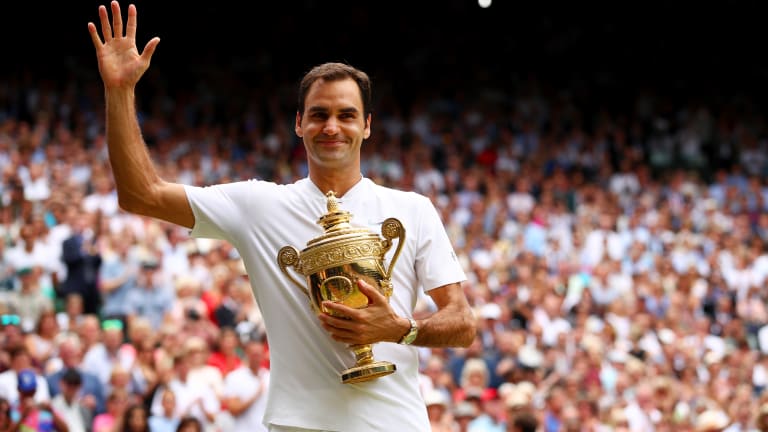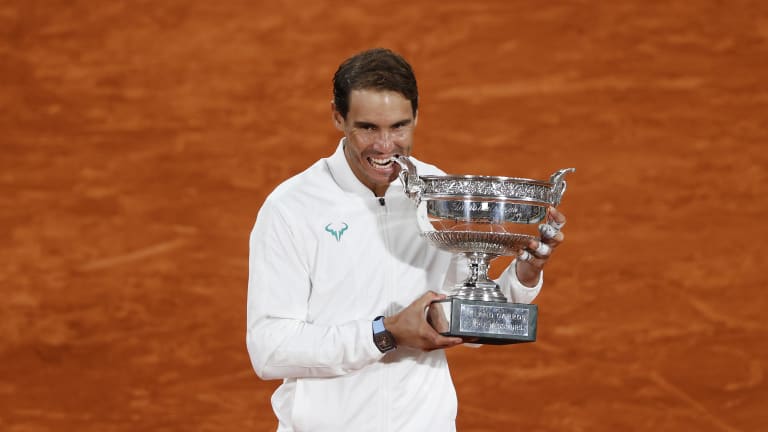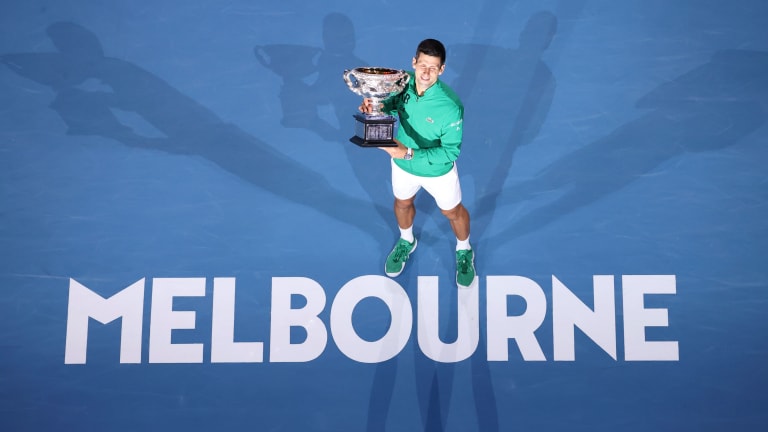Why Federer, Nadal and Djokovic have dominated particular tournaments
By Oct 30, 2020Social
Big 3 salutes their retiring 'friend' Joao Sousa in Estoril
By Apr 07, 2024Social
Roger Federer to deliver commencement speech at Dartmouth College
By Mar 28, 2024Miami, USA
Top 5 Miami Finals, No. 1: Roger Federer d. Rafael Nadal, 2005
By Mar 27, 2024Social
Coco Gauff wants to play as the Big Three after TopSpin 2K25 unveils full player roster
By Mar 23, 2024Lifestyle
Roger Federer opens up on retirement to GQ: He doesn't miss pro tennis, but hitting a forehand is 'like riding a bike'
By Mar 15, 2024Indian Wells, USA
Top 5 Indian Wells Finals, No. 4: Dominic Thiem d. Roger Federer, 2019
By Mar 13, 2024Pop Culture
Carlos Alcaraz can’t wait to “play as myself” in upcoming TopSpin 2K25 tennis video game
By Mar 13, 2024Pop Culture
Roger Federer is California dreamin' as he takes in Golden State Warriors game, attends Oscars
By Mar 10, 2024Lifestyle
Roger Federer wraps up whirlwind tour of Thailand while Uniqlo shares his favorite stops in Shanghai
By Mar 05, 2024Why Federer, Nadal and Djokovic have dominated particular tournaments
A combination of factors have led each of the Big 3 to seemingly own a specific event.
Published Oct 30, 2020
Advertising

Why Federer, Nadal and Djokovic have dominated particular tournaments
© 2017 Getty Images
Advertising

Why Federer, Nadal and Djokovic have dominated particular tournaments
© Getty Images
Advertising

Why Federer, Nadal and Djokovic have dominated particular tournaments
© AFP via Getty Images